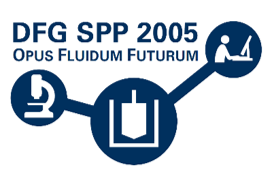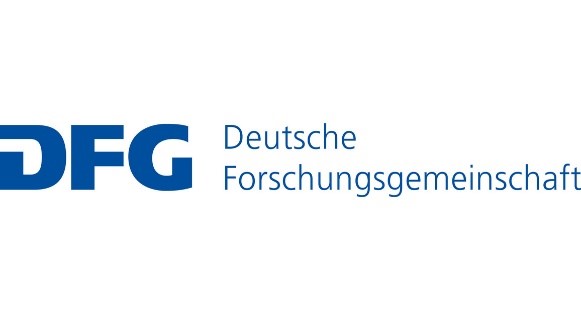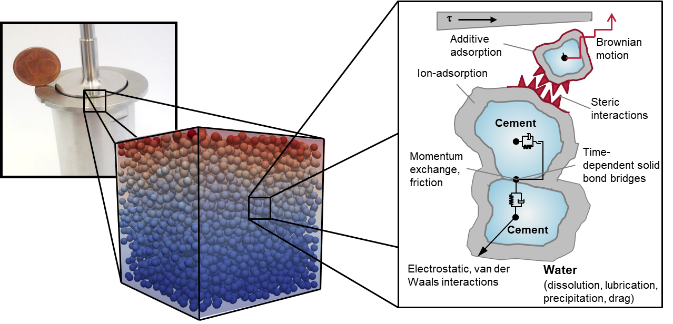Sponsor: DFG
Contact person: Dimitri Ivanov
Summary of the overall project:
The project “Simulation based modelling of time- and shear-dependent disperse and rheological properties of cement suspensions” is part of the priority program “DFG SPP 2005 – Opus Fluidum Futurum – Rheology of reactive, multiscale, multiphase construction materials” (https://spp2005.de) and aims at modelling the rheology of cement suspensions. The Institute for Building Materials, Concrete Construction and Fire Safety and the Institute for Particle Technology work together to achieve this goal.
During processing, e.g. pumping, concrete flow behaviour is determined by the rheological properties of a) the bulk material and b) the interface layer near the wall. Hence, modelling the macroscopic flow behaviour of concrete or other cementitious suspensions during processing requires a clear description of the mechanisms forming the interface layer as well as of rheological properties of bulk and interface material. Therefore, the shear induced particle migration has to be taken into account as a dominating mechanism, with larger particles migrating from regions of high shear rates to regions of lower shear rates. Another key issue is upscaling from cement paste to mortar or concrete modelling. To consider the effect of particle interactions on the macro-scale rheological models, the problem of upscaling from cement paste to concrete level has to be solved in the first place. The rheology of cement paste highly depends on its microstructure, which is determined by the shear history and hydration effects. Hence, fundamental rheological models must consider effects on microstructure formation. However, shear rates acting on cement paste at concrete level are largely unknown. In fact, the real shear rate acting on cement paste at concrete level is significantly higher than the global, i.e. macroscopic, shear rate. This so called local shear rate acting on cement paste in concrete is determined by the particle packing (distance between larger particles, i.e. sand and gravel) and the relative velocity of two adjacent large particles. Therefore, the aim of the present project is the investigation and modelling of time- and shear-dependent microstructure (disperse properties) and rheological properties of cementitious sus-pensions subjected to shear.
Goals and tasks of iPAT
Project partners
Dr.-Ing. Inka Dressler, Institute of Building Materials, Concrete Construction and Fire Safety, TU Braunschweig
Prof. Dr.-Ing. Bernhard Peters, Institute of Computational Engineering, University of Luxembourg


